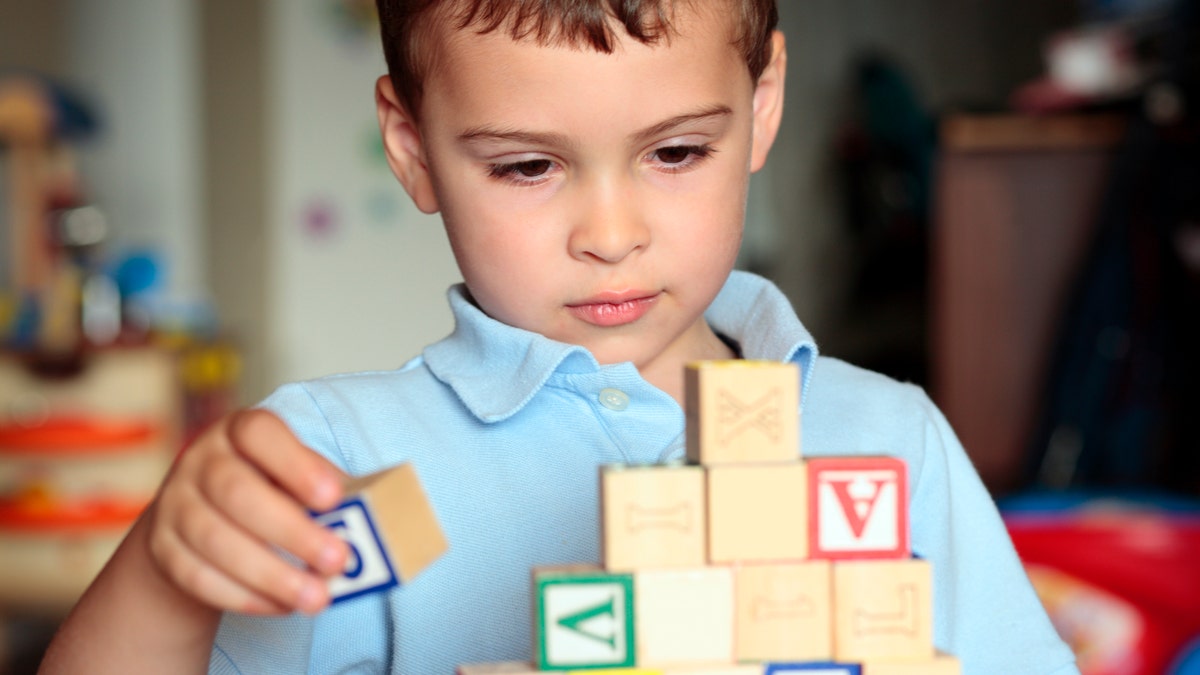
Child with autism deciding where is the best place to put his block. Shall he build it higher? (iStock)
With every autism article I consider there to be one caveat that greatly diminishes all of the incredible work the researchers are doing. Each new way researchers develop to determine an autism diagnosis or a child’s risk for diagnosis is a leg up in this ongoing battle we have with the disorder, but what we lack socially often negates whatever advancement we’ve made medically.
The autism rates in our country are at all-time highs, with 1 in 68 children being diagnosed with autism spectrum disorder around the age of 3. Thousands of parents, including me, wake each morning wondering when their child will be considered more than just a statistic by our government officials. There’s a new first-of-its-kind study using MRI technology to measure the brains of infants who have older siblings with autism to predict their chances of receiving an autism diagnosis before they ever show any symptoms. The study is small, but it has an 80 percent accuracy rate and achieves what I consider to be the most important facet of dealing with autism: early diagnosis.
Medically, we are doing what we can to fight this battle, but socially we’re a mess. I have written extensively on this topic because of my personal experiences with my 19-year-old son. We practiced early-intervention therapy with our son immediately after receiving his diagnosis and, fortunately, are financially able to continue to provide him with the services he needs to further develop his social and life skills. But, for inner city parents and families, the more we do for early diagnosis, the more helpless they feel. Many parents face a daily fight with public education officials to get their children the help that they need, which often results in schools providing the bare minimum for these kids.
We still have very little understanding of what causes autism, and why some children are more at-risk than others. The research in this area is ongoing, and must continue to receive federal funding so that we can work toward finding a cure. Until then, government officials cannot ignore our accomplishments in this field and the need for more therapeutic treatments. As the new Congress evaluates our country’s health care needs, you can expect parents of autistic and special needs children to be yelling the loudest. Secretary of Education Betsy DeVos must work to enhance the proficiency of special education teachers and support curriculums in our public schools that give these children a fighting chance.
I applaud the researchers at the Carolina Institute for Developmental Disabilities and other institutions who contributed to this latest work, but now I call on our politicians to take it a step further. As parents and physicians, we are working as hard as we can to develop early intervention therapies so that these children grow up to become valued members of our society, but we need Washington’s help to further our cause. Until we can find a way to provide for these children equally, we cannot truly celebrate medicine’s amazing accomplishments.








































